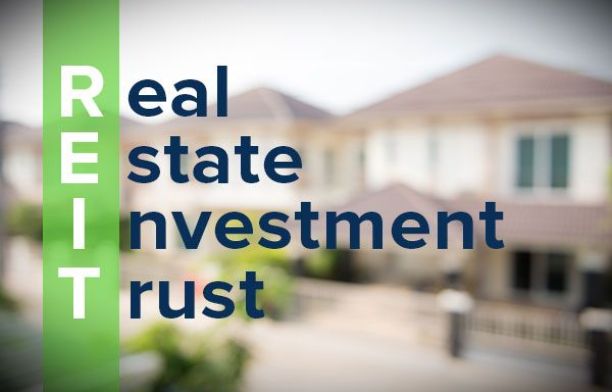The Ultimate Guide to Real Estate Investing: Everything You Need to Know as a Beginner
When you hear the word 'investing', the things that probably come to mind are stocks, bonds or other financial assets. But have you ever considered real estate as a viable way to grow your wealth?

Though more traditional methods of investment inform most people’s portfolio strategies, real estate investing has become an increasingly popular choice for many Americans in recent years.
According to a survey done by investment firm Coldwell Banker Richard Ellis (CBRE), half of real estate investors indicated that they invest in real estate because of generally higher risk-adjusted returns; and another 14% said that their choice of investment was linked to the potential income stability provided by property investments. Although investing in property comes with its own specific risks, it can be a lucrative addition to any investor’s portfolio.
Whether you’re an investing novice or a seasoned pro, it’s key to review all factors before making a critical financial decision. Here’s everything you should know before sinking your cash into an investment property, and the factors to consider beforehand.
Key Points
- Real estate investing entails an individual purchasing property for the purpose of generating income or capital gain
- Real estate investing is popular among investors because of the appreciation value and rental income
- The different types of real estate investments include commercial properties, residential properties and REITs
**Disclaimer **
The contents of this article are for educational purposes only. They are not intended to be a source of professional financial advice. You will find experts on financial planning, financial management, and real estate here. More on disclaimers here.
What Is Real Estate Investing?
Much in the same way that individuals purchase stocks or bonds at one price with the intention of selling them for a gain at a later date, investing in real estate offers the potential of future return.
Real estate investing entails an individual purchasing property for the purpose of generating income or capital gain.

Investing in real estate differs from owning property. An individual who buys a home as their primary place to live is not a real estate investor, though they may realize a profit if they decide to sell their house down the line.
This difference between a property one owns and lives in, and one that an individual owns as investment, has crucial tax-related implications. For example, unlike residences, investors can generally deduct losses on rental properties, per guidelines outlined by the Internal Revenue Service.
Why Do People Invest in Real Estate?

Individuals tend to invest in real estate due to its superior risk-adjusted returns and their capacity to provide a stable income stream, according to a report by CBRE.
This is often the case for investors purchasing individual properties with the intention of selling them later or renting them out.
Investors who own real estate generally expect that property values will increase with time. Even during the COVID-19 pandemic, the average cost of a home rose 6.5% nationally over the course of a year, per the Federal Housing Finance Agency.
Moreover, as investors wait in the hopes that their property will appreciate in value (though this is by no means guaranteed), they often have the option to rent it out, yielding rental income and building equity.
“Some investors are looking to diversify their investments, and real estate is a strong option for being part of an investment portfolio. But I suspect many investors look at real estate investments as passive income with better returns than other sectors of the market,” says Bloomington, Indiana, Realtor Deb Tomaro.
But purchasing an individual property isn’t the only way to invest in real estate. Successful real estate investors can also purchase shares in REITs (real estate investment trusts). REITs are companies that own, operate or finance income-producing real estate properties, such as office buildings, shopping centers, apartments, and hotels.

REITs typically generate income from rent, lease and mortgage interest payments, which they distribute to shareholders as dividends. REITs are required by law to distribute at least 90% of their taxable income to shareholders in the form of dividends, which makes them an attractive investment for income-seeking investors.
Additionally, individuals who bought land with the intention of developing it, or purchased a property that needs significant renovation before being flipped should not anticipate collecting rent from tenants in the immediate future.
Other common reasons individuals purchase real estate include:
- The option to leverage property as collateral, in order to borrow more money from a lender at a later date
- Their expectation that the earnings on a real estate investment will be greater than other investment holdings
- The desire to diversify their investment holdings to offset risk
This last component is critical for investors. Many choose real estate as a component to their portfolio, alongside other assets.
Savvy investors take steps to cover all their bases and hedge against risk by purchasing different asset types, and this should apply when considering a real estate investment.
Putting the entirety of one’s available funds into a piece of property can net a significant gain if the property increases in value, in addition to rental income. It also exposes the investor to a decrease in earnings if the real estate market takes a nosedive, or if the rental market dries up.
“The real estate markets are known for their cycles, and if an investor puts all their eggs in one basket, they may experience times that their investments go down in value,” says Omer Reiner, an Orlando-based real estate investment professional.
“Investors also risk losing money on fix and flip projects, or a decline in their rental income if they own rental properties,” Reiner adds.
Real estate is generally an illiquid investment. An investor’s money is generally locked into the property for a period of time, meaning that they are unable to access the cash value of this asset at a moment’s notice.
As such, it’s important to consider how your earnings will be affected if your real estate holdings have an unprofitable year, as well as your degree of reliance on income generated from investments, and adjust your strategy accordingly.
What Are the Different Types of Real Estate Investments?

Real estate investments come in several forms, each with their own benefits and drawbacks. These are some of the most common avenues of real estate investing:
Residential Real Estate

This form of investment is the most traditional, and its structure is likely familiar to anyone who’s rented an apartment or house.
Residential real estate investment involves an investor(s) purchasing a property for the purpose of renting it out.
The benefits of this type of investment can be quite lucrative as an individual who invests in a residential property can sell it for a gain if its value appreciates, and take advantage of rental income in the meantime.
Additionally, a residential owner can gain equity by using rental income to pay the property’s mortgage.
But there are key caveats to owning a residential property — namely the responsibilities you, as a landlord, are required to uphold by law, which often differ from state to state. In general, landlords across the United States are required to ensure their rental units are safe and in livable condition for tenants, as well as to fix issues relevant to the residence’s habitability. Additionally, property owners need to take steps to find prospective tenants who will rent from them.
“Real estate ownership requires management and upkeep. You’ll need to find a qualified tenant and deal with property deficiencies usually,” says Peter Joudaki, a personal real estate professional in West Vancouver, British Columbia. “It’s more hands on than the financial assets where a broker is managing your stocks or fund.”
This responsibility can be a time and money drain for real estate investors. Thankfully, holders of residential real estate often use a property management company to deal with these issues.
Such companies typically charge a fee for this service between 7-10% of the rent, according to property listings platform Zillow, but some may charge a flat fee.
The cost of property management services is especially important to individuals renting out vacation properties on a part-time basis, which tend to have higher property management fees. One estimate puts them between 25-30% of the renting price, according to short-term booking management platform Lodgify.
Given this range, it helps for residential property owners to shop around for different companies to find the best price.
Beyond management services, there are additional costs such as landlord’s insurance, liability insurance, and property taxes that the owner should calculate and factor against any potential profit.
As a final consideration, residential property ownership can come with potentially costly legal issues. For example, if you have a tenant who is unwilling or unable to pay rent, the price of legal fees, court costs and lost rent averages roughly $3,500, according to TransUnion.
Though it’s entirely possible that you and your tenants will be able to get along amicably, it’s another facet to consider and budget for, when purchasing a rental property.
Commercial Real Estate

Investing in commercial real estate has similar benefits to residential real estate, in the sense that the investor or investor group purchases property to rent or sell at a profit; although this property is used as a place for business-related purposes.
Given that commercial real estate generally requires more square footage than residential, and that commercial real estate tends to be built on pricier ground; then potential property holders can expect to pay substantially more for their investment upfront. In turn, investors can expect to benefit from greater rental income, the average monthly residential rent in Manhattan being $4.62 per square foot, according to analysis by property listings site Zumper.
REIT (Real Estate Investment Trust)

Owning individual properties usually requires a high degree of involvement and cash by the owner. If you're an investor and would like to invest in real estate without owning any physical properties, then REITs (real estate investment trusts) would be a great investment choice for you. In general, REITs are companies that purchase or finance real estate, generating revenue through multiple properties at once.
Investors purchase shares in a trust that owns real estate, as opposed to owning the real estate themselves, and then the profits made from the renting or selling of properties are paid out to shareholders.
When a REIT makes a profit on the rent charged for its property holdings or on the sale of an asset, it’s required to distribute at least 90% of its taxable income for the year to shareholders, per regulations by the Securities and Exchange Commission (SEC).
This structure makes REITs more accessible and transparent to those who want to benefit from the potentially profitable nature of real estate investing without having to purchase an individual residential or commercial property.
Conversely, as an investor in a REIT, you have no flexibility as it relates to where the trust is purchasing property, or what kind of property it purchases.
“REITs are great ways to diversify your portfolio, and to start investing in real estate with fewer than tens of thousands of dollars,” says Tyler Forte, a real estate brokerage professional based in Nashville, Tennessee.
“However, as a shareholder, you will have little control over the real estate company, and you still face the risks of value depreciation as anyone who actually holds the title of the real estate,” Forte adds.
REITs can be sold in multiple ways. Some are sold on an exchange, some are real estate exchange traded funds and some are not publicly traded at all. REITs that are publicly traded tend to benefit from greater liquidity than do other real estate investments and offer greater liquidity to the investor as they can opt to sell or buy shares as they choose. On the other hand, property owners usually have to wait some time before selling their holdings if they want to realize a decent profit.
A non-traded REIT tends to be more illiquid, meaning that investors can sell their shares only in the event of a “liquidity event” as stipulated by the trust. Such restrictions can make it more difficult for an investor to readjust, should they feel the returns on their shares aren’t up to par with expectations.
If you’re considering this investing method, make sure to do your research on different trusts to find one that works for your budget and investment goals. It would also be advisable to speak to a qualified real estate professional as you continue to shop around for options with minimal operating percentage costs.
Crowdfunded Real Estate

Purchasing real estate through real estate crowdfunding platforms might seem unconventional, but it’s become a popular investment method. It tends to work best for those who want to invest in real estate but lack the necessary capital to pay for a property individually, and want greater flexibility in terms of a property’s type or location.
Real estate crowdfunding enables developers, real estate investment companies, and entrepreneurs to raise capital for new investments.
This is how crowdfunding operations differ from REITs; an investor who purchases shares in a publicly traded REIT obtains part ownership in a company that owns or will purchase real estate.
Real estate crowdfunding, however, is a method through which a company or entrepreneur accumulates funding through multiple individuals for future investment in a real estate development.
Crowdfunding also enables investment in different real estate projects in varying areas, helping to eliminate risk related to an area-specific real estate market. On the flip side, this form of investing comes with additional costs and considerations.
“Crowdfunding is easier to diversify geographically, as there is no need to manage real estate personally,” says Bill Walker, chief operations officer of home remodeling services platform Kukun. “It’s also easier to diversify in that you can invest a smaller amount in multiple projects and project types.”
“The drawbacks tend to include paying the ‘platform’ or management fees, however,” Walker adds. “Plus, you’re not able to visually inspect the property or be hands on with management.”
Additionally, some crowdfunding platforms require that investors be accredited if they seek to invest.
An investor is considered accredited if their earnings totaled more than $200,000 for each of the last two years ($300,000 if married) and is reasonably expected to earn the same this year, according to the SEC. Alternatively, if an investor has a net worth of $1 million or more, they are also considered accredited.
That said, some companies allow non-accredited investors to get some skin in the game, though you should likely double check before determining which crowdfunding platform works for you and your budget.
In general, crowdfunded real estate developments come with generally higher risk than established REITs, because as an investor you’re putting your money into a project that may not pan out at all.
As such, and per regulations set by the Jumpstart Our Business Startups Act, individuals are required to conduct business through a broker dealer or funding portal, and must be registered with the SEC. Both are characteristics you should look for before investing. Businesses engaging in crowdfunded real estate are also required to disclose key information, such as factors that make the investment risky, according to the Financial Industry Regulatory Authority.
Investors considering participating in a crowdfunded project should take advantage of the transparency required by law to assess their potential risk, relative to potential reward as a determinant of whether or not they should invest and also how much money they should put in .
What Factors Should I Consider Before Investing?
Depending on the real estate investing strategies that you choose to implement, there are a number of considerations to keep in mind.

If you’re investing in an individual property, be it residential or commercial, you’ll need to consider factors about the property in question, and whether it will be an attractive home to potential renters. This can involve assessing:
- The neighborhood: Is the area desirable? Are there factors, such as proximity to schools or high crime rates, that will affect whether renters will move to this home? Are there many vacancies that indicate a renter’s market instead of a buyer’s market?
- The geographic area: What are property taxes like in the city or state, and how will they affect my bottom line? What’s the general employment rate? Is this area going through an economic downturn that can affect a tenant’s ability to pay rent each month?
- The property: What are some costs I might have to pay in order to make this apartment livable and attractive? What are average rents on similar properties nearby? Will this anticipated rental income justify my initial investment, and at what point?
In addition to paying attention to the property itself, individuals should consider wider market trends and set realistic expectations for what they’ll earn initially on their investment, based on the current market value.
“Expecting more than a seven 7 rental yield on a new multi-family investment in an expensive city, or expecting high capital appreciation in a mid-tier city may not be realistic in the current market,” says San Francisco–based real estate agent Manu Changotra.
“Return expectations should vary with the location and type of investment. If investors have realistic expectations from a local market, they’re more likely to succeed there,” Changotra adds.
When it comes to investing in a REIT or crowdfunding platform, it’s critical to consider similar factors. Though you won’t be responsible for upkeep of the property or properties you have a partial stake in, you’ll want to ask yourself:
- Is the real estate development being crowdfunded popular enough to attract renters? What is the median rent for similar properties in the area?
- How long will it take for dividends from my REIT, or percentage rental income of a crowdfunded real estate development, to equal my initial investment? In the context of my time horizon, how much investment income can I expect to earn?
- Does the REIT or real estate crowdfunding platform appear legitimate? Have I done my research on any past or pending investor complaints?
That last recommendation is critical: Any potential investors should do at least a cursory search around the web to see if the crowdfunding platform has a history of negative reviews, per the Federal Trade Commission.
A similar assessment can be conducted for any REIT. Though there are numerous reputable investment companies out there, there are many with less than stellar reputations. The SEC recommends all potential investors check that a REIT is registered before investing, which can be done by searching its name on its website.
Moreover, understand what will happen if your real estate investment doesn’t pan out. For example, in the event that the developer is unable to go forward with the project, will your investment platform reimburse you? What obligation does the platform have to you as it relates to the amount invested?
Finally, as is the case with any investment, potential buyers need to consider the risks inherent to a real estate purchase. Ask yourself, would I be in a financial bind if I didn’t find a tenant? How long could my property go vacant before I would suffer a significant financial setback? If the economy suffers a recession, can I sustain a dip in property value, share price or dividends as I wait for my investment to bounce back?
Considering the risks and rewards from a real estate investment can help determine whether your decision is salient or risky. Keep in mind that diversifying your holdings, even within your real estate assets, can help your portfolio weather the storm.
The Bottom Line
Investing in real estate has enormous potential, both for your financial goals and as a source of passive income. However, ensure that you consider the ups and downs when buying in.
Consider the advantages and disadvantages of an investment, your tolerance for risk and your long-term financial goals before selecting a real estate investment vehicle. With careful planning and a well-diversified portfolio, you’ll find a great balance that can last well into the future.
Bay Street Capital Holdings

Bay Street Capital Holdings is an independent investment advisory, wealth management, and financial planning firm headquartered in Palo Alto, CA. They manage portfolios with the goal of maintaining and increasing total assets and income with a high priority on managing total risk and volatility.
Founded by William Huston founded Bay Street after 13 years of supporting the United States' largest retirement plan ($650B) Bay Street was founded to advocate for diverse and emerging fund managers and entrepreneurs.
In 2021, Bay Street was selected as a finalist out of over 900 firms across the US in the category of Asset Manager for Corporate Social Responsibility (CSR).
Sources
https://www.investopedia.com/mortgage/real-estate-investing-guide/
https://www.fortunebuilders.com/investing-in-real-estate-for-beginners/
https://financebuzz.com/guide-to-starting-real-estate-investing
https://www.reedyandcompany.com/blog/the-ultimate-guide-to-real-estate-investing-for-beginners/
https://thinksaveretire.com/ultimate-real-estate-investing-guide/





















